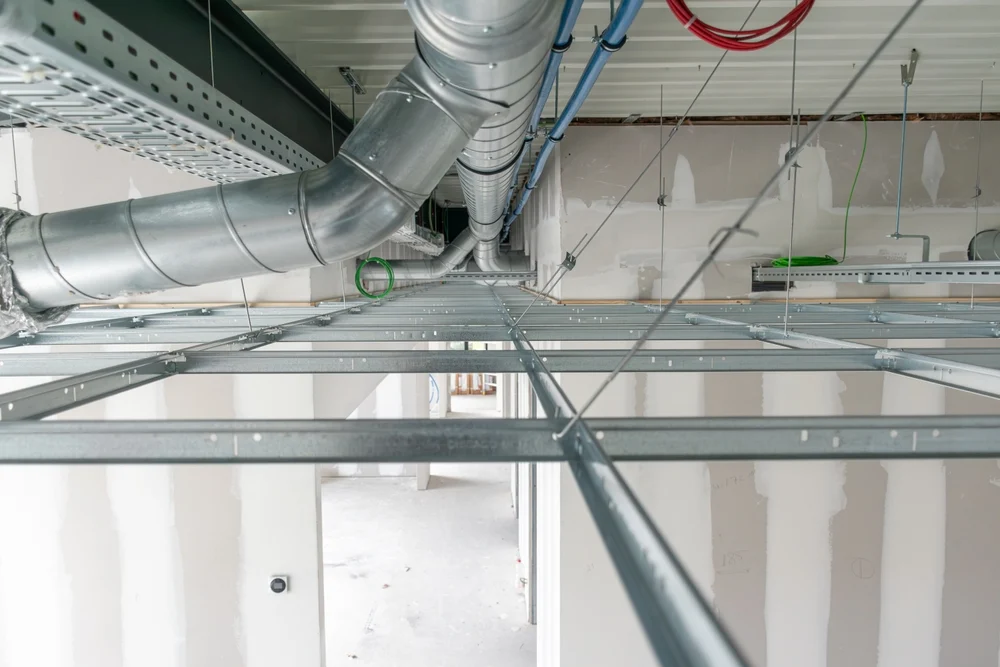8 Surprising Benefits of Advanced HVAC Systems for Commercial Buildings
Investing in an advanced HVAC system for a commercial building goes beyond basic heating and cooling. Modern HVAC systems offer features that enhance building performance, improve tenant satisfaction, and reduce long-term costs. Below, we’ll explore eight surprising benefits of upgrading to a high-quality HVAC system in a commercial setting.
1. Smart Zoning Capabilities: Precision Control for Large Spaces
In commercial buildings, not every area has the same heating or cooling needs. Advanced HVAC systems feature smart zoning, which allows for targeted temperature control in different sections of the building. As a result, energy isn’t wasted in unoccupied areas, and comfort increases where it matters. This, in turn, benefits both tenants and employees by creating a better environment.
2. Humidity Management: Protecting Equipment and Enhancing Comfort
Modern HVAC systems manage more than just temperature. They also control indoor humidity. In commercial spaces, excess humidity can damage equipment and raise maintenance costs. Therefore, proper humidity control is essential. It protects assets like electronics and creates a healthier indoor atmosphere, which, in turn, enhances tenant satisfaction.
3. Air Filtration & Purification: Improving Indoor Air Quality In Commercial Buildings
Indoor air quality is crucial in commercial environments. Advanced HVAC systems come with air filtration and purification features. These systems filter out allergens, dust, and pollutants. As a result, the workspace is healthier. Cleaner air can lead to higher productivity and fewer sick days, making it essential for offices and multi-family buildings.
4. Advanced Energy Management Systems (EMS): Cutting Costs Through Smart Technology
Energy efficiency matters for commercial property owners. Advanced HVAC systems use Energy Management Systems (EMS) to optimize energy use. For example, they adjust based on factors like occupancy and weather. This data-driven approach can save money while maintaining comfort. Additionally, it helps predict energy costs, which is useful for budgeting.
5. Variable Refrigerant Flow (VRF): Adaptive Comfort and Efficiency
Variable Refrigerant Flow (VRF) technology is part of many advanced HVAC systems. It adapts refrigerant levels based on demand, which saves energy. This allows specific areas to receive cooling while others do not. As a result, VRF is ideal for diverse commercial environments. It boosts comfort without wasting energy, making it both efficient and effective.
6. Remote Monitoring & Control: Managing HVAC Systems from Anywhere
Property managers benefit from remote HVAC control. Advanced systems allow adjustments through mobile apps or Building Management Systems (BMS). Therefore, HVAC settings can be optimized from anywhere. As a result, downtime and maintenance issues are reduced. Consistent comfort is maintained for tenants, even when adjustments are made off-site.
7. Quiet Operation: Enhancing Comfort Without Disruption
Noise matters in commercial buildings. Loud HVAC systems can disrupt offices or multi-family buildings. Fortunately, high-quality HVAC systems operate quietly. As a result, they create a better environment. A quieter space improves productivity and tenant satisfaction, which makes it a significant advantage.
8. Predictive Maintenance: Preventing Issues Before They Happen
Predictive maintenance is a key feature of modern HVAC systems for commercial buildings. These systems use sensors to detect potential issues early. Consequently, unexpected breakdowns and costly repairs are reduced. By scheduling maintenance before problems arise, commercial operations remain smooth and uninterrupted.

